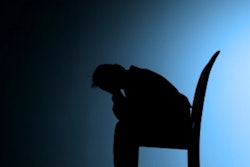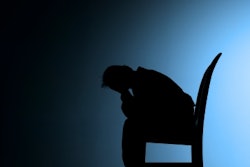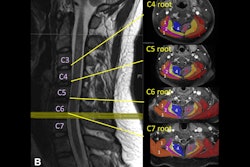Functional MRI (fMRI) has revealed that cognitive behavioral therapy (CBT) positively changes the brain, altering brain structure and boosting grey-matter volume, according to a study published August 27 in Translational Psychiatry.
The findings confirm the efficacy of CBT, wrote a team of researchers from Martin Luther University Halle-Wittenberg (MLU) and the University of Münster, both in Germany.
"Cognitive behavioral therapy was already known to work," corresponding author Ronny Redlich, PhD, said in a statement released by Martin Luther University. "Now, for the first time, we have a reliable biomarker for the effect of psychotherapy on brain structure. Put simply, psychotherapy changes the brain."
More than 280 million people around the world suffer from severe depression, a condition that can lead to changes in the brain mass of the anterior hippocampus and amygdala -- both of which are part of the limbic system and are responsible for processing and controlling emotions, the group explained. CBT is an established method for treating depression, as it addresses thought patterns, emotions, and behavior, and is assumed to be linked to functional and structural changes in the brain, the team noted.
Using functional MRI, doctoral students Esther Zwiky and Tiana Borgers and their colleagues analyzed the brains of 30 patients with acute depression before and after 20 sessions of CBT; these patients also underwent clinical interviews.
The group reported that more than half of the patients diagnosed with acute depression -- 19 of 30 -- had hardly any acute depressive symptoms after therapy, and that their brains had altered in a positive manner: Those with a greater increase in grey matter in the amygdala also showed a stronger reduction in their emotional dysregulation.
"Our results support the assumption that CBT affects not just the patient's experiences and behavior but also brain structure and add to previous findings in depressive disorders and other mental disorders (e.g., social anxiety disorder, obsessive-compulsive disorder, spider phobia) that demonstrated the structural plastic effects of CBT," the researchers wrote.
 Gray-matter volume changes in the amygdala within patients and the association with improvements in alexithymia (Difficulty Identifying Feelings). (Left) Scatter plots depicting GMV changes (delta = t2-t1) within the cluster of the right amygdala (x = 32, y = −3, z = −27) on the y-axis correlated with changes (delta = t1-t2) in the Toronto Alexithymia Scale (TAS20) subscale Difficulty Identifying Feelings (DIF; rs = 0.321, p = 0.042) on the x-axis within the patient group. Line: regression slope. (Right) Coronal view (Montreal-Neurological-Institute coordinate y = 0) depicts the results of the paired t-tests (t1 vs. t2) in the patient group within the bilateral amygdala. Graphics, images, and caption courtesy of Translational Psychiatry via a Creative Commons License.
Gray-matter volume changes in the amygdala within patients and the association with improvements in alexithymia (Difficulty Identifying Feelings). (Left) Scatter plots depicting GMV changes (delta = t2-t1) within the cluster of the right amygdala (x = 32, y = −3, z = −27) on the y-axis correlated with changes (delta = t1-t2) in the Toronto Alexithymia Scale (TAS20) subscale Difficulty Identifying Feelings (DIF; rs = 0.321, p = 0.042) on the x-axis within the patient group. Line: regression slope. (Right) Coronal view (Montreal-Neurological-Institute coordinate y = 0) depicts the results of the paired t-tests (t1 vs. t2) in the patient group within the bilateral amygdala. Graphics, images, and caption courtesy of Translational Psychiatry via a Creative Commons License.
The study findings are positive, but do not necessarily mean that CBT is the best depression treatment for everyone, Redlich said, noting that some people respond better to medication, while others respond well to electrostimulation or CBT.
"It is … encouraging that we were able to show in our study that psychotherapy is an equally effective alternative from a medical and scientific standpoint," he said.
The complete study can be found here.







![Coronal and axial slice of the average cortical F-18 MK-6240 SUVR [standard uptake value ratio] image for each study population. SUVR images were corrected for partial volume effects and masked with the gray matter mask used for volume of interest delineation. Overall tau accumulation is comparable between the late-life depression (LLD, middle column) and non-depressed cognitively unimpaired comparison (HC, left column) groups, while abnormal tau accumulation, which is most pronounced in the mesial temporal lobe, can be seen in the mild cognitive impairment due to Alzheimer's disease group (right column). Image and caption courtesy of the American Journal of Geriatric Psychiatry.](https://img.auntminnie.com/files/base/smg/all/image/2024/07/Tau_depressed.66a16540ee0a1.png?auto=format%2Ccompress&fit=crop&h=167&q=70&w=250)













